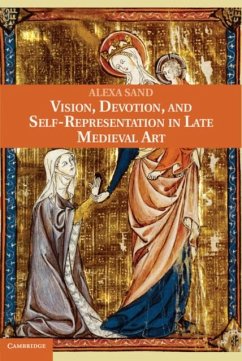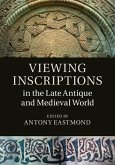This book investigates the 'owner portrait' in the context of late medieval devotional books primarily from France and England. These mirror-like pictures of praying book owners respond to and help develop a growing concern with visibility and self-scrutiny that characterized the religious life of the laity after the Fourth Lateran Council in 1215. The image of the praying book owner translated pre-existing representational strategies concerned with the authority and spiritual efficacy of pictures and books, such as the Holy Face and the donor image, into a more intimate and reflexive mode of address in Psalters and Books of Hours created for lay users. Alexa Sand demonstrates how this transformation had profound implications for devotional practices and for the performance of gender and class identity in the striving, aristocratic world of late medieval France and England.
Dieser Download kann aus rechtlichen Gründen nur mit Rechnungsadresse in A, B, BG, CY, CZ, D, DK, EW, E, FIN, F, GR, HR, H, IRL, I, LT, L, LR, M, NL, PL, P, R, S, SLO, SK ausgeliefert werden.









